#nhtsa
Tesla Blames Short Sellers for Recall Petition, Says No Problem Exists
Following confirmation from the National Highway Traffic Safety Administration (NHTSA) that it will look into a petition calling on the agency to formally investigate 500,000 Tesla vehicles over reports of unintended acceleration, the automaker took to the internet to defend itself.
On Monday, Tesla issued a blog post to say the allegations against it are wrong. It believes claims of unintended acceleration are erroneous, pushed by someone hoping to scoop up Tesla shares at a lower price so they can be swiftly flipped.
The short-seller defense is a popular one with CEO Elon Musk. He’s previously called short sellers “value destroyers,” repeatedly suggesting that the practice should be made illegal. But it’s also in his interest to keep Tesla’s stock ludicrously high, which it is. Despite being several times smaller than either General Motors or Ford, Tesla’s market worth has surpassed their combined value.
NHTSA Mulls Petition Seeking Tesla Recall Investigation
The National Highway Traffic Safety Administration agreed to review a petition requesting the agency formally investigate 500,000 vehicles manufactured by Tesla Motors. The petition cites 127 consumer complaints to NHTSA involving models produced since 2012 and asks the NHTSA look into 500,000 units it believes may need to be recalled.
Many of the complaints involve incidents of unintended acceleration when attempting to park vehicles; others cite events where a vehicle’s advanced driving systems (namely Autopilot) led to erratic behavior or crashes in traffic. On Friday, the agency said it would look into the issue.
Opinion: It's Past Time for a Tesla Autopilot Recall
The evidence keeps stacking up against Tesla. As the National Highway Traffic Safety Administration investigates crash after crash involving Tesla vehicles under the influence (or suspected influence) of Autopilot, when is enough too much?
Third in a Month: NHTSA Opens Probe Following Tesla Crash
Cars crash all the time, but vehicles believed to be piloted by an advanced driver-assist system at the time of the collision earn themselves an investigation from a federal agency. Such is the case with the latest Tesla crash, with occurred in Indiana on December 29th.
The fatal collision between a Model 3 and a parked fire truck is the third such investigation opened by the National Highway Traffic Safety Administration in a month.
NHTSA Investigating Another Tesla Crash
Barely two weeks after the National Highway Traffic Safety Administration last opened an investigation into a Tesla crash, the federal agency is once again probing a collision involving a Tesla vehicle — this one a fatal incident.
The agency announced this week that a December 29th crash in Gardena, California that killed two occupants of a 2006 Honda Civic will fall under its purview.
GM Still Pushing Cars Without Steering Wheels, Talking With NHTSA
Remember when General Motors talked about delivering an autonomous vehicle, sans steering wheel or pedals, and how the Department of Transportation said Federal Motor Vehicle Safety Standards basically made it impossible? Well, GM hasn’t given up the fight to disassociate drivers from driving.
The U.S. National Highway Traffic Safety Administration has started talks with GM over the automaker’s petition to deploy a limited number of self-driving vehicles on American roads last Friday. Acting NHTSA Administrator James Owens told Reuters that the petition (issued in 2018) is currently under review.
“I expect we’re going to be able to move forward with these petitions soon — as soon as we can,” Owens said, suggesting a final decision would be made in 2020. “This will be a big deal because this will be the first such action that will be taken.”
Mercedes to Pay $13 Million U.S. Regulatory Fine As NHTSA Keeps Watch
Mercedes Benz will pay a $13 million penalty to U.S. safety regulators over a failure to report a string of necessary recalls. A signed settlement on file with the National Highway Traffic Safety Administration (NHTSA) indicates that Daimler’s American arm could be on the hook for up to $20 million in regulatory fines.
The remaining $7 million is in the hands of the NHTSA, which has to eventually decide whether or not Mercedes expedited its recall notices or improved upon its recall processes. The automaker will be audited by the regulatory agency until 2022 to help make those assessments.
NHTSA Upgrades Probe Into GM Windshield Wipers
Maintaining a clear view of the road ahead through a vehicle’s windshield is a fundamental part of road safety, and things can go downhill fast if a vehicle’s wipers crap out at an inopportune time.
Since 2016, the National Highway Traffic Safety Administration has paid growing attention to the wipers on two GM models: the Chevrolet Equinox and GMC Terrain, both of which were recalled that year following a number of reported windshield wiper transmission failures. The recall covered the 2013 model year.
NHTSA also began looking into Equinoxes and Terrains from different models years, receiving numerous (read: hundreds) of complaints during the course of its investigation. Now, that probe has entered a new phase, signalling that a new recall might be on the way.
NHTSA Investigates 12th Autopilot-related Crash
The National Highway Traffic Safety Administration (NHTSA) says it will investigate a 12th crash relating to Tesla Motors’ Autopilot system. The automaker has found itself under increased scrutiny as the public grows increasingly weary of technological gaps in today’s advanced driving aids. Truth be told, it’s probably shouldering more of the burden than it needs to. Whereas most driving aids manage to fly beneath the radar, Tesla’s marketing of Autopilot has always framed it as being on the cusp of true autonomy.
It’s always just one over-the-air-update away from genuine self-driving capabilities.
That’s why you don’t read reports about some poor dolt in a Toyota rear-ending someone and the government doing a deep dive on Safety Sense to figure out why. Nobody cares, and there aren’t countless examples of people taking their hands off the wheel of their Camry with confidence after being confused into thinking it could drive itself. But it happens in Tesla models with uncomfortable frequency, even among drivers who really should know better.
Another Gigantic Takata Airbag Recall Could Be Incoming
Automakers could be staring down the barrel of another brutally large airbag recall as the National Highway Traffic Safety Administration evaluates the long-term safety of inflators manufactured by the now-bankrupt Takata. Earlier this month, the parts supplier announced a recall affecting 1.4 million additional vehicles following the death of a BMW driver. Several new injuries also stemmed from the issue.
At the same time, the U.S. road safety regulator had to make a decision as to whether the roughly 100 million inflators containing a chemical drying agent intended to solve the problem are actually safe.
So far, it’s looking like a no.
More Engineers Come Forward Over Ford's Bunk DSP6 Transmission
In July, we covered a scathing report that criticized Ford Motor Co’s usage of the DSP6 dual-clutch transmission found in the third-gen Focus and sixth-gen Fiesta. The hardware was surrounded by controversy, with company insiders highly critical of its implementation. Claims arose that the unit wasn’t performing as intended throughout its development, with corporate lawyers expressing serious doubts as to whether DTC technologies (which were relatively new at the time) were the automaker’s best choice.
Hindsight seems to have proven them right. The PowerShift DSP6 turned out to be a turd the company polished to the best of its ability and then put on sale, leading to more headaches. Officially, the manufacturer has said the vehicles were safe when introduced and have remained so. Still, Ford is well aware of the tranny’s issues; since the problems came to light, the automaker has extended warranties and encouraged service centers to repair their problematic transmissions.
While a kind gesture, some remain concerned that Ford appears to be sweeping the whole issue under the rug. Customers are angry, claiming the automaker should have never put the unit into production — a move that resulted in civil litigation. But that doesn’t appear to have ever been a real possibility. Those who tried to stop the DSP6 claim they were doomed to failure from the start.
The Takata Recall Continues; Now Includes 1.4 Million Additional Vehicles
The largest automotive recall in history just got a little more inclusive. Takata is recalling another 1.4 million vehicles after the airbag-related death of a BMW driver. The German manufacturer has issued three recalls covering roughly 116,000 U.S. vehicles containing the faulty equipment, saying it is aware of at least one fatality in Australia, plus a few injuries.
By now, you’re probably familiar with the issue. Takata supplied tens of millions of defective air-bag inflators over several years. The units are prone to exploding in the event of a crash, spraying metal shrapnel inside the cabin, after its propellant becomes compromised by nothing more than moisture. This has led to many senseless deaths, the largest automotive recall in history, and Takata declaring bankruptcy two years ago before its purchase by China’s Ningbo Joyson Electronic Corp.
Regulators, Mount Up: NTSB Presses NHTSA for Better Self-driving Safety
While the National Transportation Safety Board’s (NTSB) job isn’t to establish new regulations, it is obligated to enforce the country’s Federal Motor Vehicle Safety Standards while conducting crash investigations and making recommendations to other agencies on ways to improve vehicular safety.
Lately, that job involves telling the National Highway Traffic Safety Administration (NHTSA), an agency that does write those rules, to step up its game on autonomous vehicles.
Last week, the NTSB held a board meeting in Washington D.C. to determine the probable cause of a fatal collision between a self-driving Uber prototype and a pedestrian in March of 2018. While Uber took plenty of heat, the NHTSA also came under fire for prioritizing the advancement of advanced driving technologies over public safety.
U.S. Road Fatalities Declined in 2018
The National Highway Traffic Safety Administration announced Tuesday that American traffic deaths declined for a second year in a row in 2018. Data indicates a 2.4 percent decline in roadway fatalities last year, with bicyclists and pedestrians being the only groups to see risk moving in the wrong direction.
“This is encouraging news, but still far too many perished or were injured, and nearly all crashes are preventable, so much more work remains to be done to make America’s roads safer for everyone,” said U.S. Transportation Secretary Elaine Chao in a statement.
The DOT/NHTSA attributed improving automotive safety systems as the primary reason for the decline in deaths, though some of the metrics included in the report’s breakdown suggest other factors could be at play.
Tapping Into Technology: Congress Considers Terrifying New Solutions for Drunk Driving
U.S. Senators Tom Udall (D-NM) and Rick Scott (R-FL) plan to introduce new legislation forcing automakers to install hardware that would effectively stop intoxicated individuals from operating motor vehicles by the middle of the next decade. The stated goal is to prevent the thousands of fatal crashes stemming from drunk driving each year. It’s similar to a bill introduced by House Representative Debbie Dingell (D-MI), which aims to have advanced DUI prevention devices in all cars by 2024.
While it’s difficult to get bent out of shape over any system that curtails drunk driving, we’ve managed to find a way. As usual, it plays into your author’s ever-growing phobia of surveillance-focused technologies.





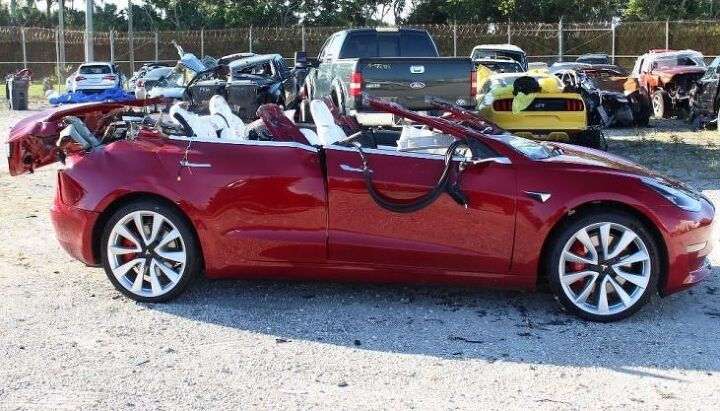
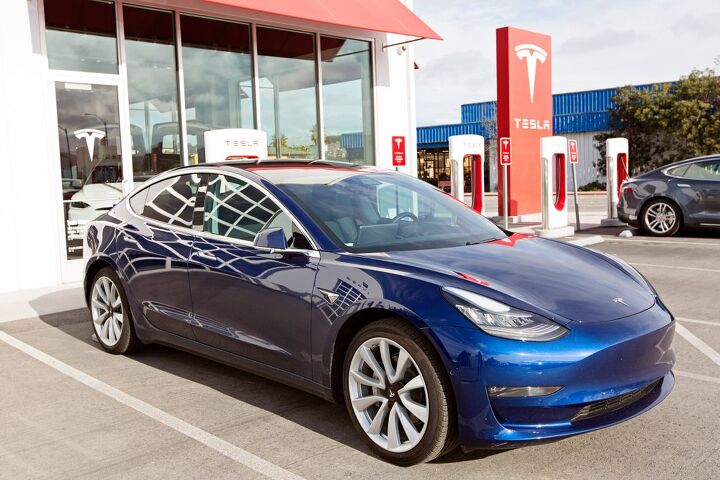



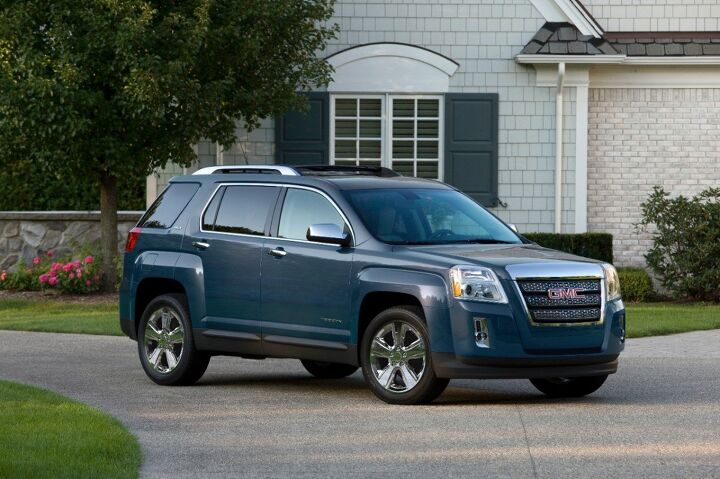

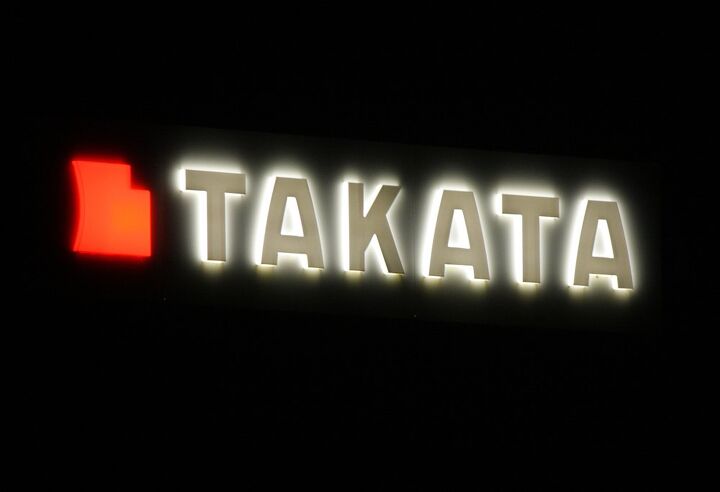
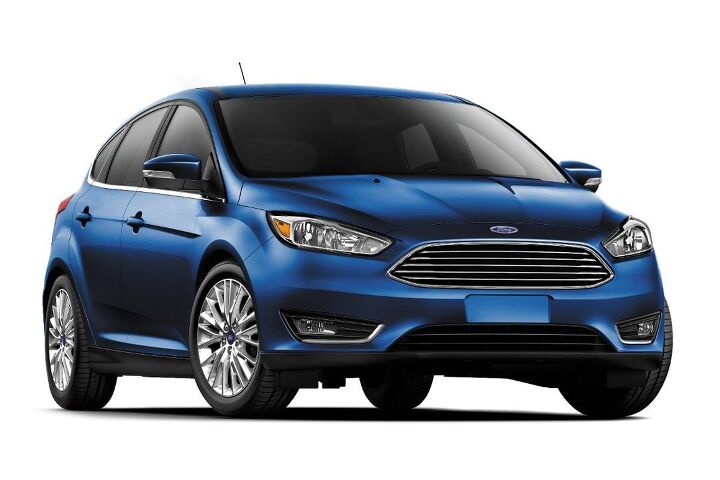
















Recent Comments